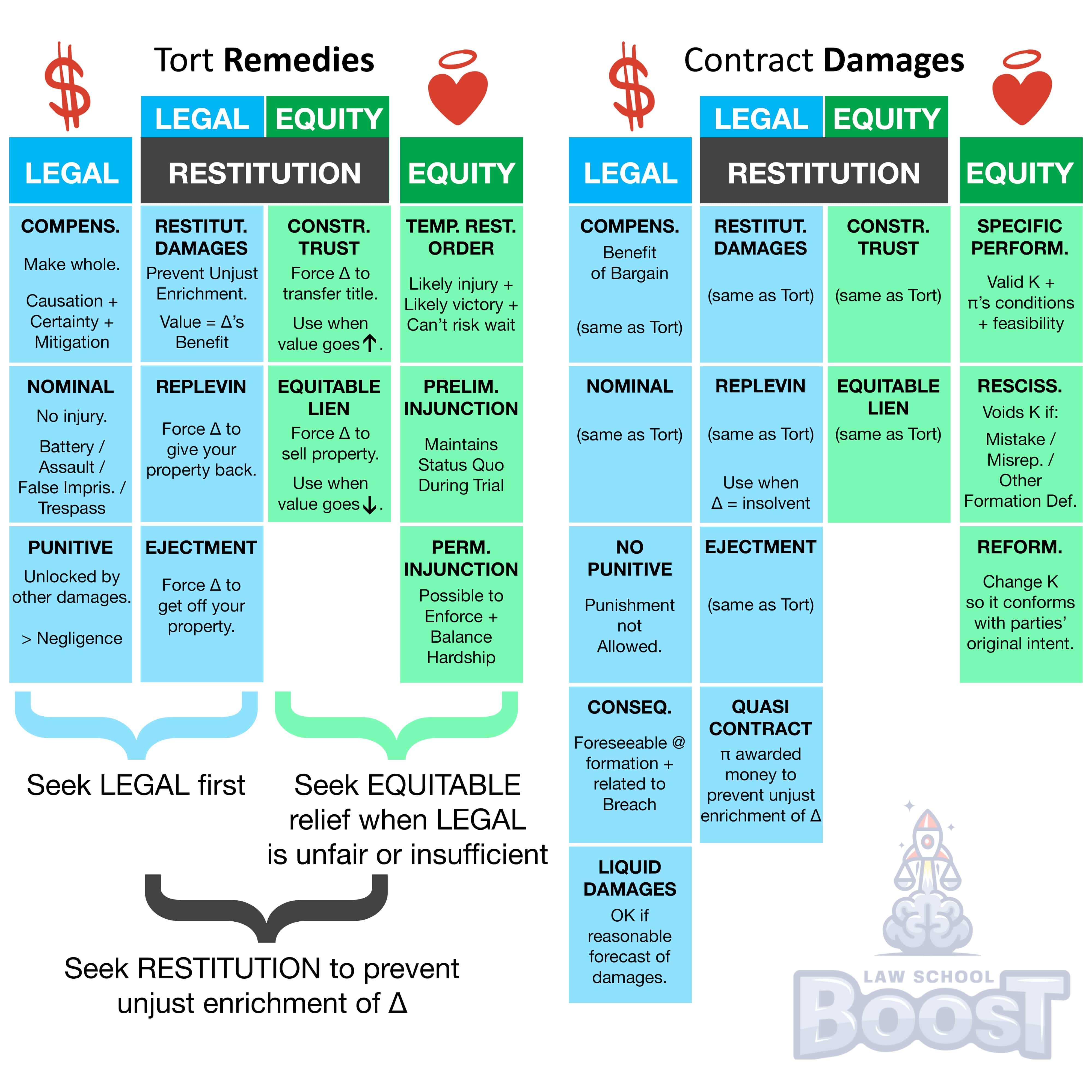🏥
Remedies • Contract - Equitable Remedies
REM#060
Legal Definition
It depends. Where a contract contains a liquidated damages clause, money damages are not de facto adequate. Specific performance may still be available, unless the clause states that liquidated damages are the only remedy available.
Plain English Explanation
When two people make a contract, sometimes they include a "liquidated damages" clause. This means that if one person breaks the contract, they agree to pay a specific amount of money as compensation. However, even if there's this clause, the other person might still want the contract to be carried out as originally agreed, which is called "specific performance." Whether they can ask for this depends on the exact wording of the contract. If the contract says that the agreed-upon money is the only solution, then they can't ask for the contract to be completed as originally planned.
Visual Aids

Related Concepts
How does election of remedies affect a claim for rescission?
What are common defenses to specific performance?
What are defenses to rescission?
What are equitable remedies in contract?
What are the defenses to formation?
What happens if a plaintiff is entitled to rescission but has already performed?
What is reformation?
What is rescission?
What is specific performance and when it is applicable?
What is the part performance exception to the Statute of Frauds?
What type of mutual mistake is sufficient for rescission?
When applying specific performance to a land purchase contract, what happens if a buyer breaches a "time is of the essence" clause with a forfeiture clause?
When applying specific performance to a land purchase contract, what happens if the quantity of land is in dispute?
When assessing reformation, what constitutes sufficient grounds?
When assessing specific performance, how do courts weigh feasibility of enforcement?
When assessing specific performance to acquire a unique piece of property, when is uniqueness tested?
When assessing specific performance, what must the status be of a plaintiff's contractual conditions?
When assessing specific performance, why are money damages sometimes an inadequate legal remedy?
When assessing whether money damages are inadequate for specific performance, why does it matter whether a piece of property is unique and what kind of property is always unique?
When is personal property considered unique enough to trigger specific performance?
Will courts grant rescission for a unilateral mistake?


